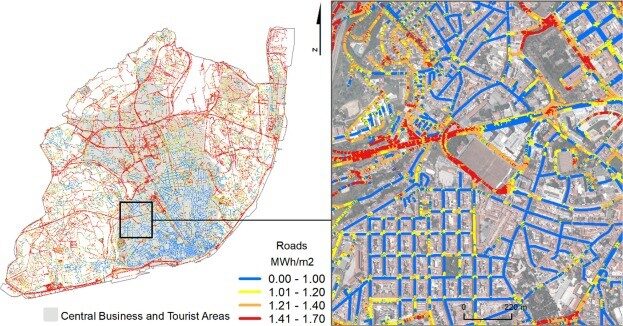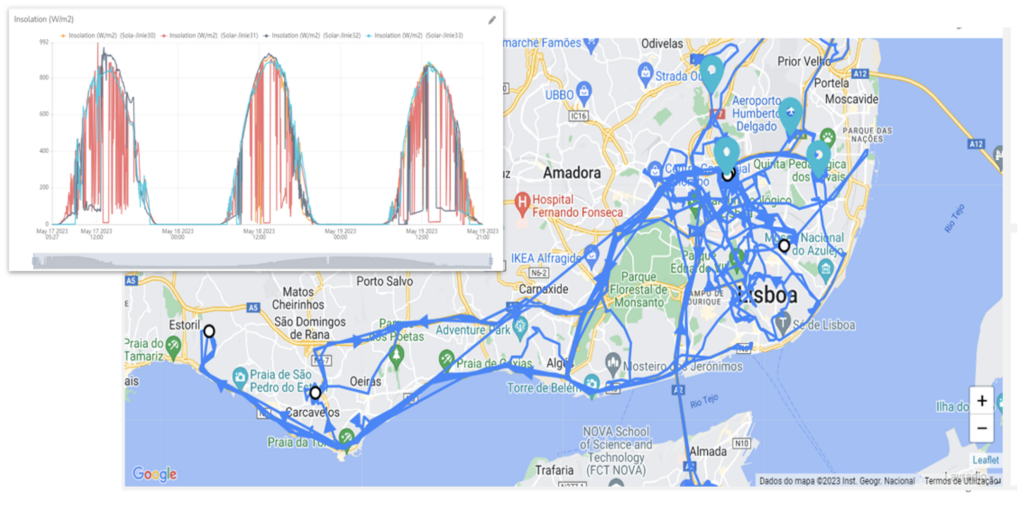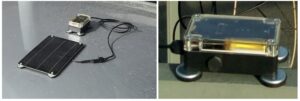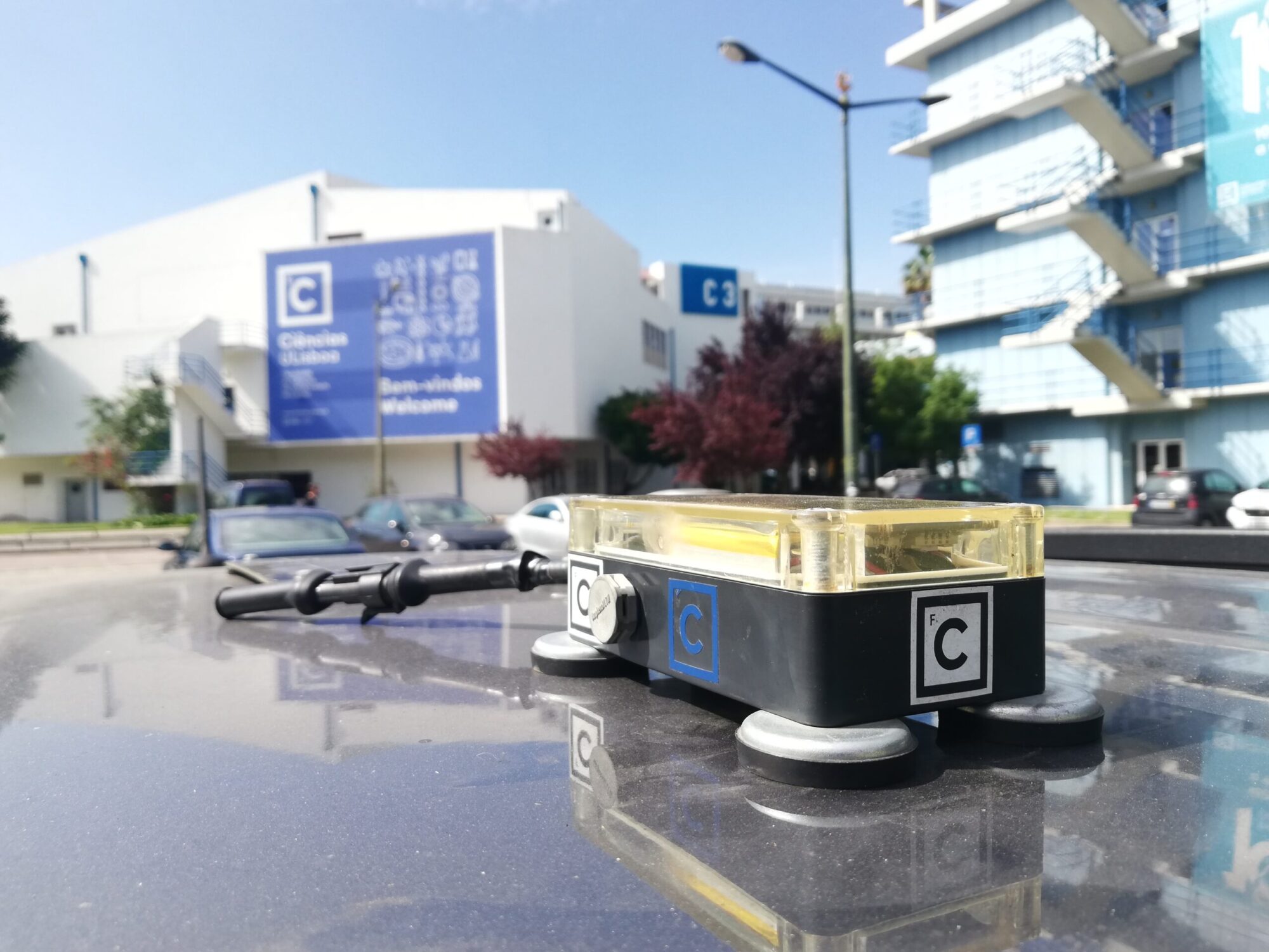The main objectives of the project are to involve volunteer citizen scientists to learn more about solar-powered vehicles and contribute to estimating the solar potential of VIPV (vehicle-integrated photovoltaics).
The integration of solar panels in electric vehicles increases the autonomy of the vehicles, which charge during the day while driving or parked, reducing costs, CO2 emissions and charging frequency.
An analysis of the potential of a city like Lisbon shows that even considering the shadows caused by buildings, solar energy could contribute, on an annual average, the equivalent of 18 km/day. Considering that the average distance travelled in the city is 30 km/day, a solar electric vehicle would reduce energy costs by more than half, eliminating summer charging needs and reducing winter charging needs by half [Brito et al, 2021].

The Solar Cars project at the Faculty of Sciences of the University of Lisbon is a citizen science project that aims to collect experimental data on the solar potential of electric vehicles to validate models like this. Measurements are carried out aboard volunteer vehicles (they don’t need to be electric cars!), citizen scientists eager to learn more about the role of solar energy for more sustainable mobility and to participate in a scientific project.
The experimental campaign consists of collecting georeferenced solar radiation data and placing a sensor capable of making this type of measurement on the roof of a vehicle (Figure 2). The sensors are autonomous (charged with solar energy) and send data to the cloud. They are magnetically fixed to the vehicle to ensure they do not move without damaging the paintwork (Figure 3).


The sensors have been in circulation in the city of Lisbon since December 2021 and have already been used in around 35 different vehicles, from buses to private and shared vehicles.
To learn more about the project please contact solar@fc.ul.pt
